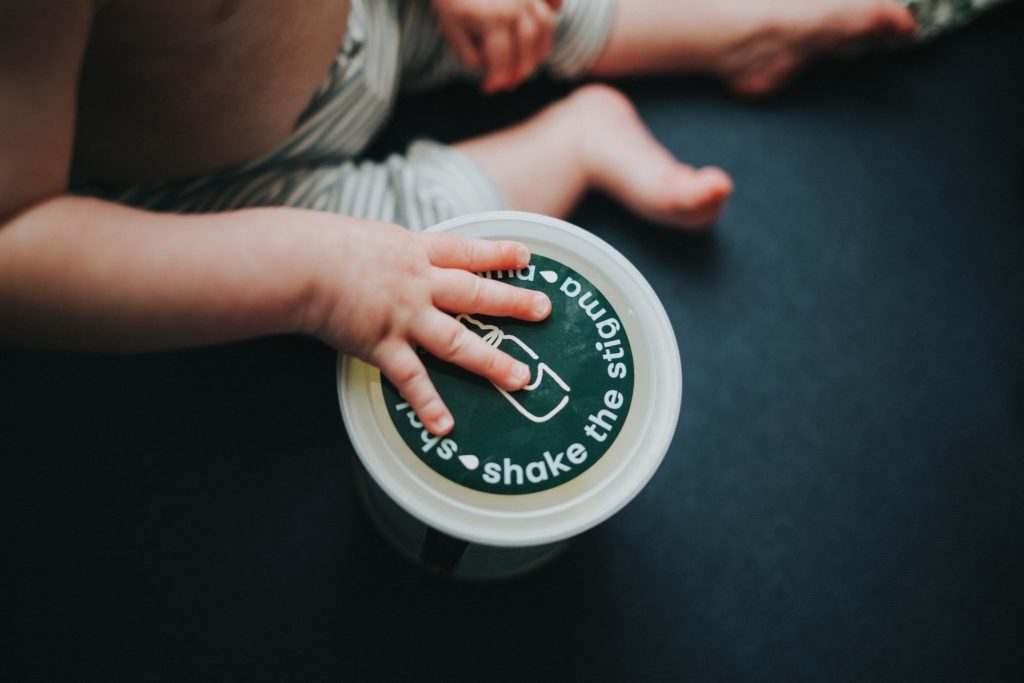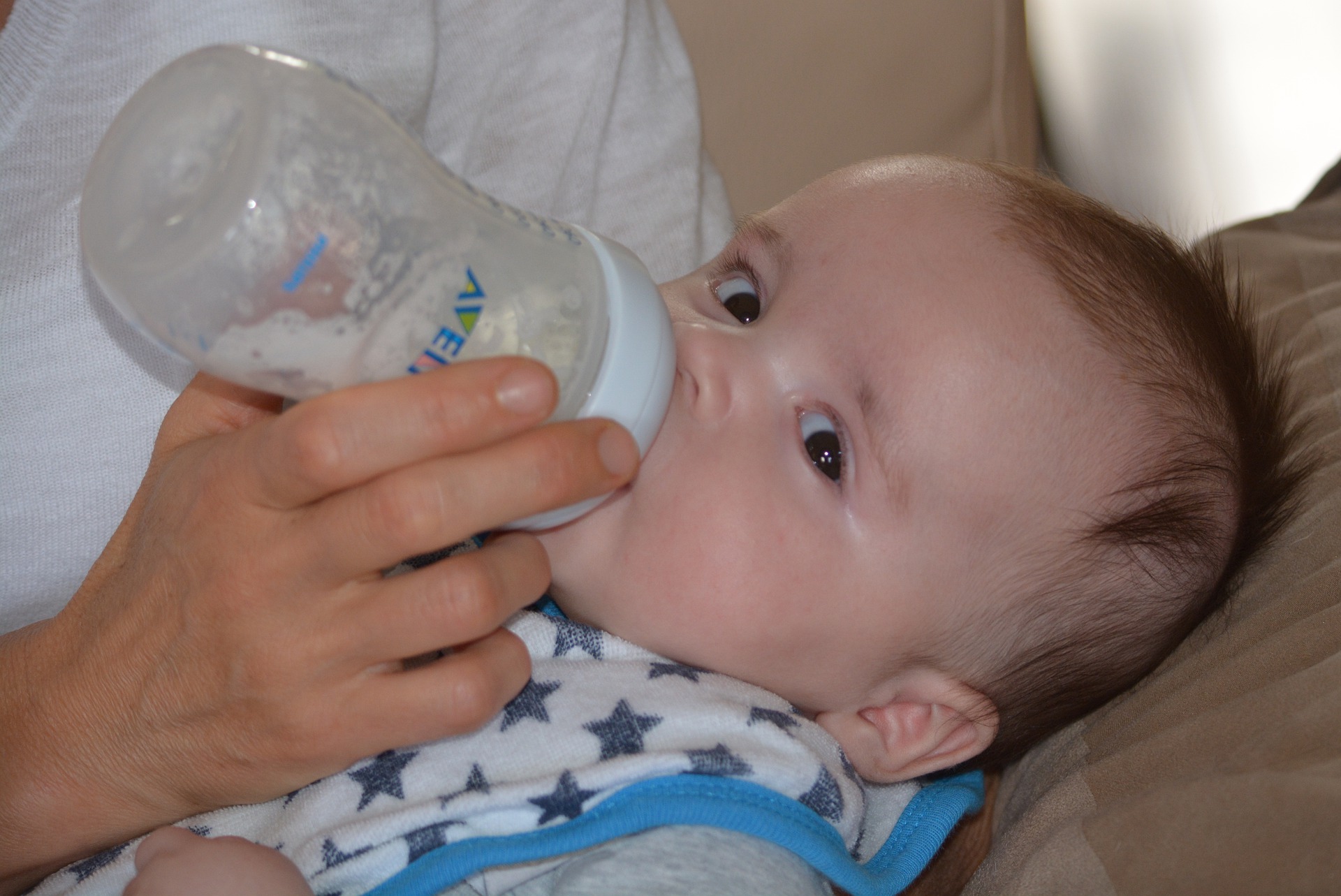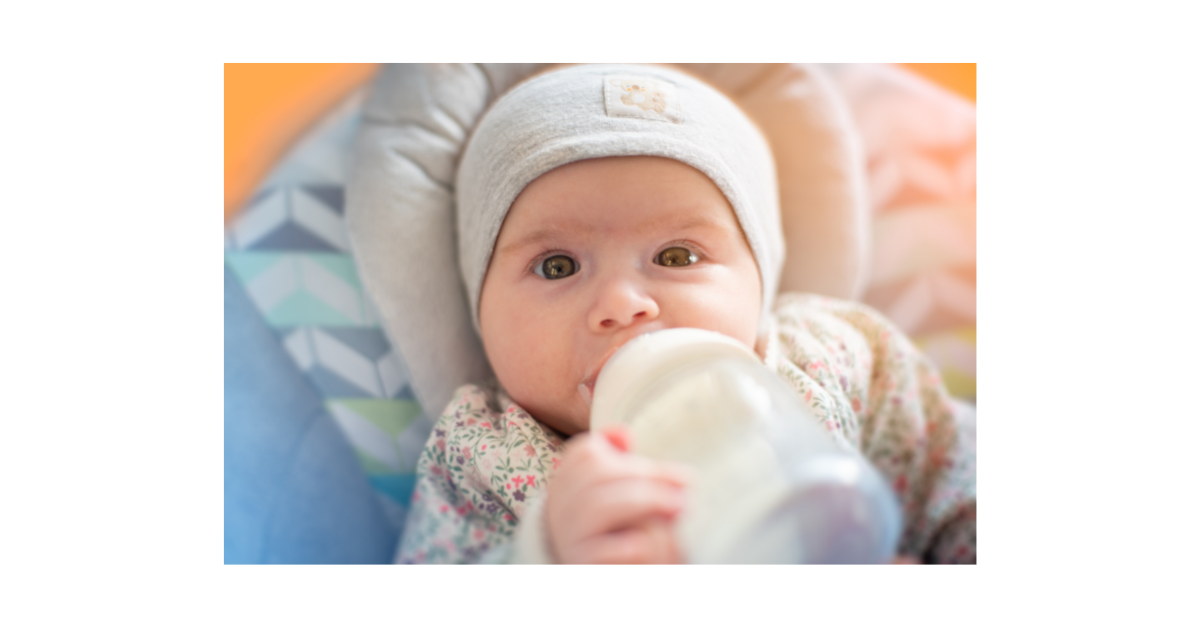A lot of new mothers are curious about baby formulas, and ask me “is ready to feed formula easier to digest?”. After all, it is in a container, and there is neither a spoon nor a bottle to be seen anywhere in the vicinity. It’s not hard at all. It is often more uncomplicated for the majority of newborns’ digestive systems to process.
Table of Contents
- What Is A Ready To Feed Formula?
- Is Ready To Feed Formula Easier To Digest?
- How Long Does Ready To Feed Formula Digest?
- Kinds Of Ready To Feed Formula
- What Are The Benefits Of Ready To Feed Formula?
- What Are The Disadvantages Of Ready To Feed Formula?
- How Do I Choose The Right Ready To Feed Formula For My Baby?
- The Difference Between Powdered and Ready To Feed Formula
- Until What Age Can You Use Ready To Feed Formula?
- Powdered, Concentrated, or Ready-To-Feed Formula: Which Is Best For Your Baby?
- Sharon’s Takeaway
What Is A Ready To Feed Formula?

A ready-to-feed formula is a type of baby formula that comes in a container and does not require any mixing. It is simply opened and then fed to the baby. Most often, these formulas are made with partially hydrolyzed proteins, which makes them easier for babies to digest. While I am not exactly a science guru, that sounds like a positive thing.
There are a few reasons why you might choose to feed your baby a ready-to-feed formula:
- If your baby has trouble digesting milk-based formulas, a ready-to-feed soy-based or hypoallergenic formula might be a better option.
- If you are traveling and unable to mix powder or concentrate formulas, ready-to-feed can be a convenient option.
- Ready-to-feed formulas may be a good choice if you are working and pumping breast milk for your baby.
- Some parents simply prefer the convenience of ready-to-feed formulas.
When it comes to digestibility, all formulas – whether ready-to-feed, concentrate, or powder – must meet the same nutritional standards set by the FDA. However, some research suggests that babies may have an easier time digesting partially hydrolyzed protein formulas, like many ready-to-feed formulas. In one study, newborns who were fed a partially hydrolyzed protein formula had fewer episodes of regurgitation and spit-up than those who were fed standard milk-based formula.
See Also: Boppy Lounger Vs Dock A Tot: What’s The Difference?
Is Ready To Feed Formula Easier To Digest?
Yes, ready-to-feed formula is often easier to digest than other types of formulas. This is because they are made with partially hydrolyzed proteins, which makes them easier for babies to digest. Additionally, research suggests that newborns who were fed a partially hydrolyzed protein formula had fewer episodes of regurgitation and spit-up than those who were fed standard milk-based formula. If you are concerned about your baby’s ability to digest formula, speak to your pediatrician about the best option for your child.
How Long Does Ready To Feed Formula Digest?
There is no definitive answer to this question as each baby digests formula differently. However, in general, it takes babies between 24 and 48 hours to digest formula. If you are concerned about your baby’s digestion, speak to your pediatrician for advice.
If you need to pump at work but are unable to feed your baby breast milk, ready-to-feed formulas could be a good alternative. They’re also easier for parents who don’t want to deal with the hassle of making formula from a powder or concentrate. Ready-to-feed, concentrate, and powder recipes must all fulfill the same FDA nutritional guidelines when it comes to digestibility. Many ready-to-feed formulas contain partially hydrolyzed proteins, and some research suggests that babies may have an easier difficulty digesting these. Talk to your child’s pediatrician about what formula could work best for your infant if you have concerns about his or her digestive system.
Related: What To Do With Old Breast Pumps? Ask Sharon
Kinds Of Ready To Feed Formula
There are many different types of ready-to-feed formulas on the market, including:
- Milk-based formulas
- Soy-based formulas
- Hypoallergenic formulas
- Organic formulas
Parent’s Choice Infant Formula is a milk-based, ready-to-feed formula that is nutritionally complete for babies up to 12 months old. It is easy to digest and contains no artificial flavors or colors.
Enfamil Nutramigen Ready-To-Feed Formula is a hypoallergenic formula that is designed for infants who have trouble digesting milk proteins. It is easy to digest and helps reduce gas, fussiness and crying.
Similac NeoSure Ready To Feed Infant Formula is a nutrient-rich formula that is designed for premature babies. It helps promote brain and eye development and supports a strong immune system.
Check This: Similac Ketonex vs Enfamil BCAD: Which One Should Your Baby Have?
What Are The Benefits Of Ready To Feed Formula?
The ready-to-feed formula has many benefits, including:
- It is easy to digest.
- It is convenient for travel or when you are on the go.
- It does not require mixing powder or concentrate formulas.
Some formulas are specifically designed for infants who have trouble digesting milk proteins or who are premature.
If you are working and pumping breast milk, a ready-to-feed formula can be a good alternative.
What Are The Disadvantages Of Ready To Feed Formula?
The ready-to-feed formula also has some drawbacks, including:
- It is more expensive than powder or concentrate formulas.
- It can be difficult to find in stores.
- Some parents prefer the taste of powder or concentrated formulas.
Powdered and concentrated formulas provide more nutrition per ounce than ready-to-feed formulas.
How Do I Choose The Right Ready To Feed Formula For My Baby?
When choosing a ready-to-feed formula for your baby, consider the following factors:
- Your baby’s age and stage of development
- Your baby’s health history
- Your baby’s dietary needs
- Your personal preferences
Ready-to-feed formulas come in different types, including milk-based, soy-based, hypoallergenic, and organic formulas. Talk to your child’s pediatrician about what formula could work best for your infant if you have concerns about his or her digestive system.
Read Also: Exersaucer Vs Jumperoo- Which One Is The Best For Your 15-Month-Old?
The Difference Between Powdered and Ready To Feed Formula
Powdered and ready-to-feed formulas are similar in many ways, but there are some key differences. The ready-to-feed formula is more expensive than powder formula, but it is also more convenient. Powder formula requires mixing with water, while the ready-to-feed formula does not. The ready-to-feed formula is also sterile, so it does not need to be boiled before feeding. However, the powdered formula provides more nutrition per ounce than ready-to-feed formula.
When it comes to digestibility, all types of formulas must meet the same FDA guidelines. Many ready-to-feed formulas contain partially hydrolyzed proteins, which some research suggests may be easier for babies to digest.
Until What Age Can You Use Ready To Feed Formula?
Most ready-to-feed formulas are intended for infants up to 12 months old. However, there are some formulas specifically designed for premature babies or for infants who have trouble digesting milk proteins. Talk to your child’s pediatrician about what formula could work best for your infant if you have concerns about his or her digestive system.
Powdered, Concentrated, or Ready-To-Feed Formula: Which Is Best For Your Baby?
When it comes to determining which type of infant formula is ideal for your child, there is not a single, definitive answer that can be given. Many aspects, such as your baby’s age, medical history, nutritional requirements, and personal preferences, should be considered while selecting the appropriate infant formula for your child.
If you are working full-time and pumping breast milk like I was years ago, an alternative such as ready-to-feed formula may be helpful for you. If you are concerned about the digestive system of your baby, talk to the pediatrician who treats your kid about the several types of formula that might be most appropriate for your youngster. Formulas that are ready to feed exist in a variety of forms, some of which are based on milk, while others are based on soy, hypoallergenic, or organic ingredients.
Sharon’s Takeaway
When choosing the right kind of infant formula for your baby, there are a few things you should think about. Some formulas, like those that are already mixed and ready to feed, can cost more than others. Also, premature babies or babies who have trouble digesting milk proteins may do better on different formulas. In the end, talking to your child’s pediatrician is the best way to figure out which formula is best for him or her.











